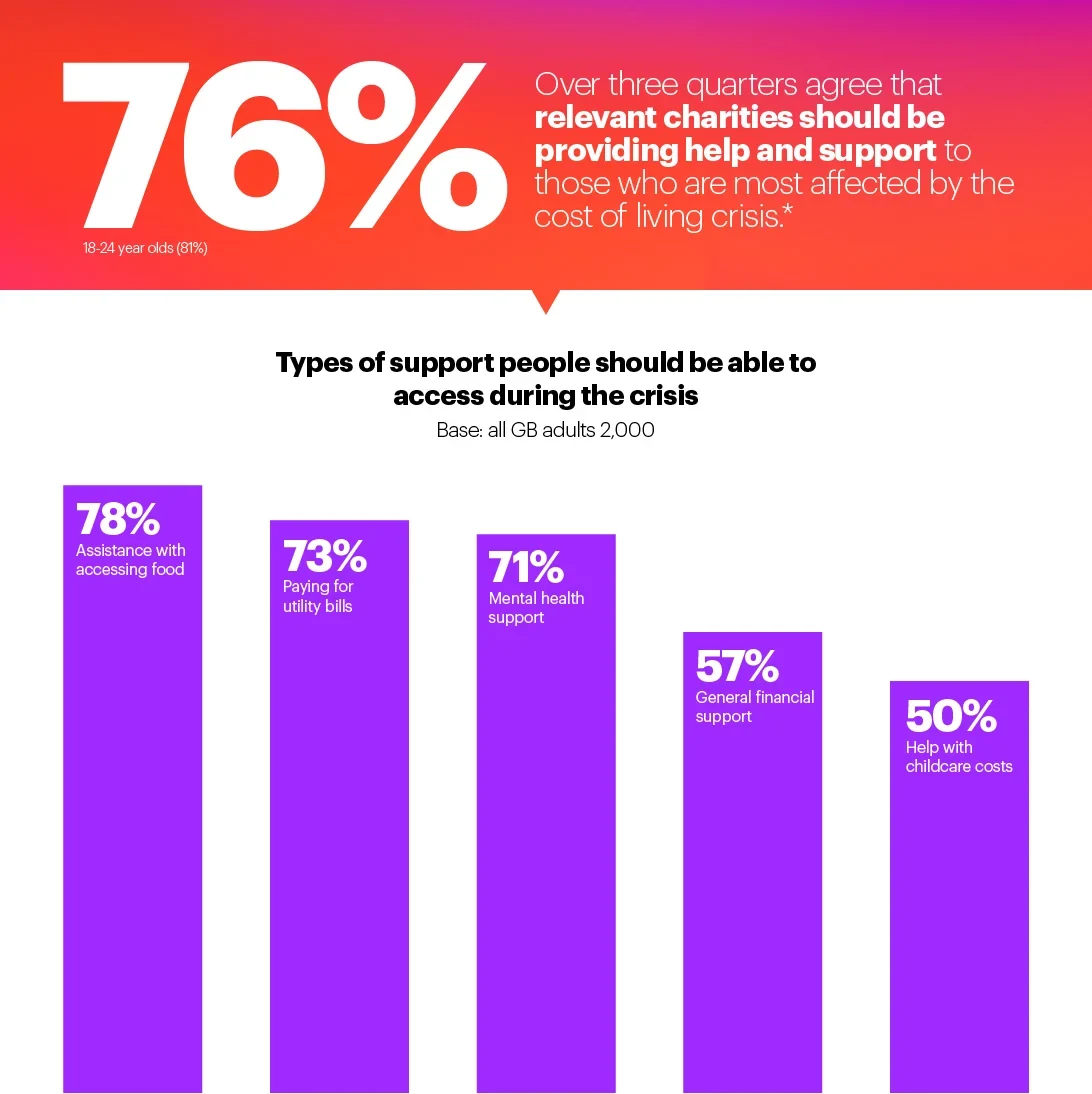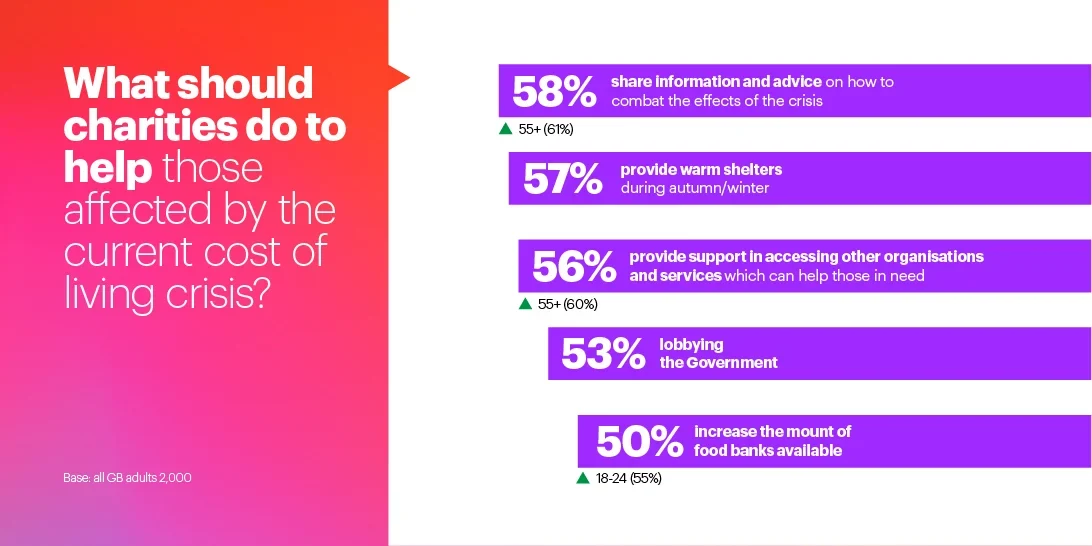
How is the cost-of-living crisis affecting charities in the UK?
Amid the current cost-of-living crisis, consumers are cutting spending across the economy. According to a recent YouGov survey, a quarter of adults in Great Britain have even had to cut back on key essentials. How is this crisis affecting charities? Respondents are reducing cash donations to charities, but data indicates that they’re willing to contribute more in other ways.
Charities are an important resource for those in need. Recent data gathered using YouGov RealTime Omnibus indicates that more than three quarters (76%) of respondents believe that “relevant charities should be providing help and support to those who are most affected by the cost of living.” The youngest cohort is most convinced, with 81% agreeing with that statement.

Discover more charities content here
When asked what services should be accessible during the crisis, respondents identified assistance with accessing food (78%), mental health support (71%) and paying for utility bills (73%) as particularly important. Just over half of respondents said that general financial support (57%) and help with childcare costs (50%) should be available.
However, respondents don’t necessarily believe that it’s up to charities themselves to provide everything. When asked what charities ought to do to help those affected by the current cost of living crisis, more than half of respondents cited “lobbying the government” (53%) and “providing support in accessing other organisations and services which can help those in need” (56%). Only 27% believe that charities should “increase the number of services they provide.”

Get quick survey results from nationally representative or targeted audiences using YouGov RealTime Omnibus
As with other forms of spending, the cost-of-living crisis is affecting how much respondents are giving to charity. Overall, 21% say they’re donating less than usual to charities. However, this trend is not as strong among the youngest age group surveyed. Only 17% of 18–24-year-olds say they’ve reduced their giving whereas 12% of them say they’re donating more during the current cost-of-living crisis, significantly higher than the 8% of the general population who say the same thing.
Even if people donate less money, they may participate in charity in other ways. Half of all respondents say they’re more likely to donate goods compared to only 9% who say they’re less likely to do so. A fifth of respondents also say they’re more likely to donate their time (20%) and campaign for a charitable cause (21%). In addition to being more willing to give in some forms, respondents also seem less willing to take from charities. When asked whether they might seek help from a charity in response to the crisis, many more respondents said that they were less likely to do so (23%) than more likely (16%). This may be a sign that UK adults feel that they are able to handle this crisis on their own or that they don’t want to take up resources that they feel should go to those more in-need.
Explore our living data – for free
YouGov RealTime Omnibus provides quick survey results from nationally representative or targeted audiences in multiple markets. This study was conducted online on 14-15 September, 2022, with a nationally representative sample of 2000 adults in Great Britain (aged 18+ years), using a questionnaire designed by YouGov. Learn more about YouGov RealTime Omnibus.
Photo by Joel Muniz on Unsplash